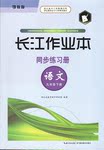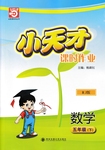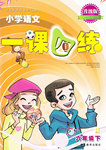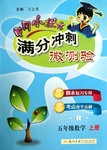题目内容
C
Thirteen can be a challenging age. Not only did I have to adapt to my changing body, I also had to deal with my parents’ bitter divorce, a new family and the upsetting move from my country home to a crowded town.
When we moved, my beloved companion, a small brown pony had to be sold. I was heartbroken and terribly lonely. I couldn’t eat or sleep and cried all the time. Finally, realizing how much I missed my pony, my father bought me another horse, Cowboy.
Cowboy was without doubt the ugliest horse in the world. But I didn’t care. I loved him beyond all reasons.
I joined a riding club. When Cowboy and I entered the events where the horse was judged by appearance, we were quickly ”shown the gate”. I knew nothing could turn Cowboy into a beauty. My only chance to compete would be in the timed speed events. I chose the jumping race.
For the whole next month we practiced running and jumping for hours in the hot sun and then I would walk Cowboy home, totally exhausted.
All of our hard work didn’t make me feel confident by the time the show came. One girl named Becky rode a big brown horse in the race events. She always won the blue ribbons. I sat at the gate and sweated all out while I watched Becky and her horse charge through the court and finish in first place.
My turn finally came. At the signal, we dashed toward the first fence, jumped over it without trouble and raced on to the next one. Cowboy then flew over the second, third and fourth fences like a bird and I turned him toward the finish line.
No cheers filled the air. The end of our run was met with surprised silence. Cowboy and I had beaten Becky and her fancy horse by two seconds.
I gained much more than a blue ribbon that day. At thirteen, I realized that no matter what the odds, I’d always come out a winner if I wanted something badly enough to work for it. I can be the owner of my fate.
1.Why did the author like Cowboy so much in spite of its ugliness?
A. Because she loved horses more than anything else.
B. Because Cowboy was a strong and smart young horse.
C. Because Cowboy had a lot in common with her pony.
D. Because she was sad and lonely and needed a companion.
2.The audience fell into silence at the end of the run probably because_________.
A. they didn’t expect Cowboy would win the event
B. they were unhappy that Becky was beaten in the event
C. they didn’t like cowboy, for it was too ugly
D. they never saw a horse running as fast as Cowboy
3.After the competition, the author came to realize that _______.
A. she ought to gather the courage to solve all the problems
B. it was time to forget her pony and treat Cowboy better
C. she needed to work harder to win more blue ribbons
D. she could be the god of her own fate if she tried hard enough
4.It can be inferred from the story that _________.
A. all of their hard training was totally in vain
B. a blue ribbon must be the second highest prize
C. Cowboy lost in the event of being judged by appearance
D. both Becky and the author won in the jumping event
 长江作业本同步练习册系列答案
长江作业本同步练习册系列答案 小天才课时作业系列答案
小天才课时作业系列答案 一课四练系列答案
一课四练系列答案 黄冈小状元满分冲刺微测验系列答案
黄冈小状元满分冲刺微测验系列答案
